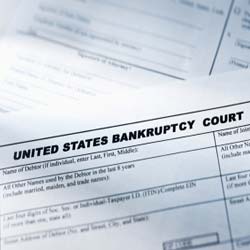 Maybe, but you should seriously consider your other options, such as redeeming the vehicle, surrendering the vehicle, and finding out whether the lender will allow you to simply retain the vehicle and remain current on the payments without signing a reaffirmation agreement.
Maybe, but you should seriously consider your other options, such as redeeming the vehicle, surrendering the vehicle, and finding out whether the lender will allow you to simply retain the vehicle and remain current on the payments without signing a reaffirmation agreement.
A reaffirmation agreement is a new contract between a creditor and debtor in bankruptcy in which the debtor agrees to remain personally liable on a secured loan and the creditor agrees to not repossess the property so long as the debtor remains current on the payments. Entering into a reaffirmation agreement is usually only done in a Chapter 7 bankruptcy. The reaffirmation agreement must be executed before the bankruptcy discharge is entered. The debtor can rescind the agreement within 60 days after the agreement is entered or the discharge order is entered, whichever occurs later.
Reaffirmation agreements should not be entered into without serious consideration. If you sign a reaffirmation agreement and later default on the loan, the lender has the right to repossess the vehicle and sue you for any deficiency balance. Imagine a scenario in which you reaffirm a loan on an older, high mileage vehicle, and the vehicle later breaks down and cannot be easily repaired. If you stop making payments on the loan, you will remain liable for the loan, even though the vehicle is not driveable and has little value. This is one example of a scenario in which signing a reaffirmation agreement is probably not the best option.
If you decide to sign a reaffirmation agreement, there are some things you should know. First, the Bankruptcy Code requires that the agreement contain many disclosures concerning the contract terms. It is important that you review the terms carefully and understand what you are agreeing to. Second, you will be required to file a statement of current income and expenses. If your income after expenses is not enough to pay the monthly loan, the court may require that you appear at a hearing and may ultimately decide not to approve the reaffirmation agreement.
If your attorney agrees to sign the reaffirmation, the attorney must certify to the bankruptcy court that you were advised of the legal effect and consequences of the reaffirmation agreement, and that the reaffirmed debt will not create an undue hardship for you or your family. In many cases, bankruptcy lawyers are unwilling to sign reaffirmation agreements because of the potential that signing a reaffirmation agreement may cause an undue hardship. Third, because reaffirmation agreements are new contracts, the lender may be willing to alter the terms of the original agreement. This could mean a reduction of principal, interest, or a change in payment length in order to make the monthly payments more affordable. Remember, because signing a reaffirmation agreement is voluntary and because many creditors are not anxious to repossess the property, you may have more leverage in bankruptcy to negotiate a better deal with the creditor.

Pingback: Chapter 7 Bankruptcy and Your Car - Bankruptcy Attorneys